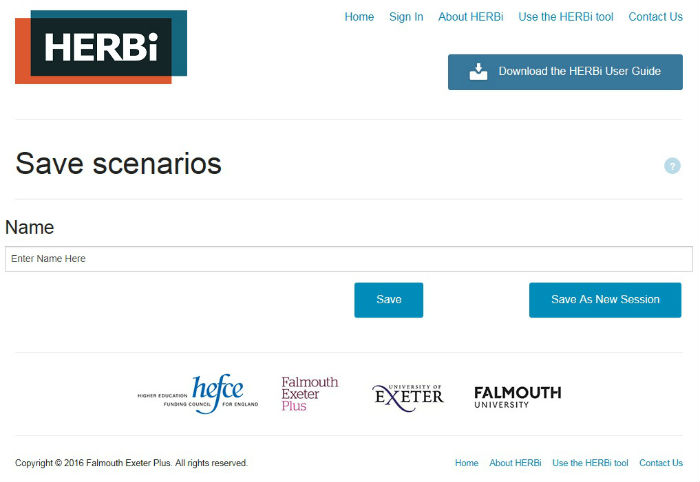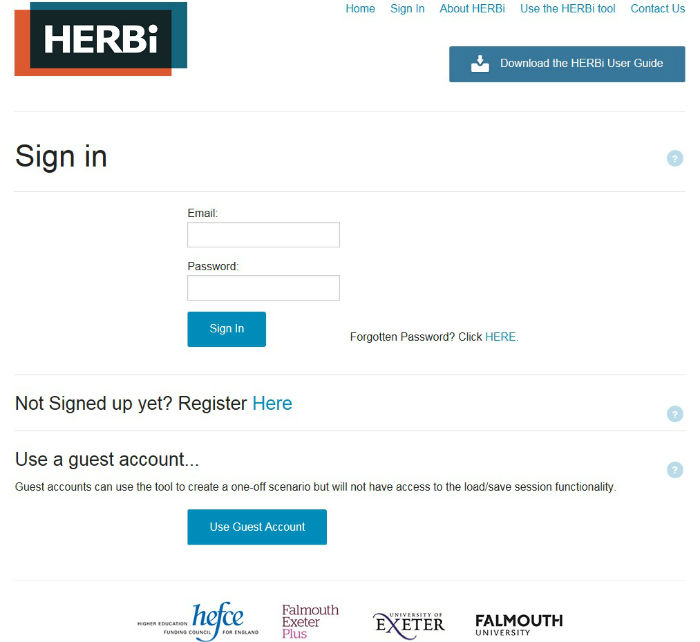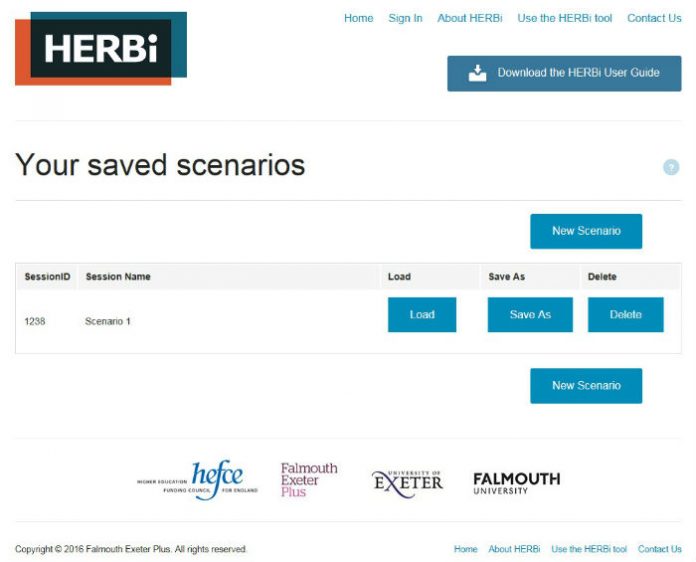The web-based HERBi tool which allows higher education institutions to explore the benefits of sharing services is now bigger and better. Project manager Simon Perks tells us about these improvements, which aim to make HERBi more responsive to the needs of users across the sector.
After we launched the Higher Education Realisation of Benefits interactive (HERBi) tool back in February, we were tempted to put up our feet and take a well-earned break on a beach somewhere. But we were excited about the response to the tool and were keen to make it even better. And besides, our beaches are rather cold in February.
Enhanced functionality
One of the things that early users of the tool mentioned was that they’d really like to be able to save their results and to come back and review or change them at a later date.
And now they can. After a fair amount of hard work and lots of late night coding sessions, we’re pleased to unveil significant new functionality with the HERBi tool. This will allow users to:
- set up their own secure, password-protected account within the tool;
- create sessions and link them to their user account;
- save sessions and return to them at a later date;
- load and update previously-created sessions; and
- create a new session on the basis of an existing one.
Why not give it a try now?
You don’t have to create an account, of course. Users can operate the tool in ‘guest’ mode, but this means that they won’t be able to save or return to their session. They can still print the results, though, or export them in a range of formats.
Understanding the costs and benefits of shared services
As existing users will know, the HEFCE-funded HERBi tool draws on the experience of Falmouth Exeter Plus, the shared services delivery partner of Falmouth University and the University of Exeter, to help institutions across the sector to explore the financial and non-financial impact of sharing different services in different ways.
Using the tool, users can model up to five institutions and nine different service areas in any one of three shared services scenarios. They can also specify whether or not the arrangement will be set up as a cost sharing group, what governance arrangements it will have and how staff cost savings will be achieved.
This allows institutions to understand and – crucially – to quantify the costs that such arrangements would involve and the benefits that they could yield. And by comparing different scenarios, it also means that institutions can identify which services or scenarios offer the greatest potential for cost savings and quality improvement through sharing.
Taking the next step
We’re still not resting on our laurels, though. In fact, we’re keen to continue to develop and enhance the tool over time, so that it remains able to respond to the needs of the sector in a rapidly changing environment.
So if there’s anything else that you’d like to see HERBi do or if you have any thoughts on how we can make it even better, just drop me a line.
Simon Perks is project manager for the HERBi project and Director of Sockmonkey Consulting, which provides research and consultancy services to organisations in the public, not-for-profit and social enterprise sectors. The HERBi tool is available at www.herbi.ac.uk.







